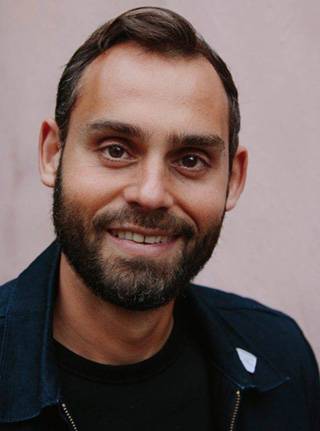
Of the reasons given to take some time and watch the upcoming total solar eclipse next month, Paul Piff, associate professor of psychological science at the University of California, offers one that has nothing to do with atmospheric science, nostalgia, community, commerce or capture the once-in-a-lifetime moment that it’s likely to be for so many folks in Genesee County and beyond.
Piff’s focus was on one magical word: awe and how that emotional experience can actually begin to transform a person’s outlook and treatment of the world.
“In the West, we find it’s predominantly brought about due to encounters that one has with nature or powerful natural phenomena such as the Eclipse. We define, or very broadly define it an emotion, or emotional experience that really arises out of two different, or the configuration of two different factors, as brought about by experience,” Piff said during an online panel presentation about the upcoming total solar eclipse. “It could be something you perceive or something you recognize in other ways, but when you experience or perceive something that's so fast, so complicated, so powerful, that it makes you feel like you need to reconfigure, readjust or update your mental schema, your understanding of the world, to accommodate the experience.
“And so, as kind of described by people, often as a mind-blowing experience of the people, they're just trying to describe that feeling of, well, I can't really make sense of, at least right now, the thing that I've just experienced, we find, as have others and other psychological laboratories across the globe, that all has a lot of really interesting effects on people,” he said. “Our experiences are described by people with some of the most meaningful in their lives, those individuals that experience improved health outcomes, greater or better well-being, they report more humble or somewhat insignificant views of the self. And we find somewhat interestingly, it seems to trigger more kind, compassionate, empathic behavior among people.”
One of his studies situated participants in a towering growth of eucalyptus trees among the tallest and oldest stands of eucalyptus trees in North America. They spent either 60 seconds looking up at those tall trees, or with their backs to the trees; they looked up at a comparably tall, but far less awe-inspiring, big building. They were then approached by an experimenter who gave them a questionnaire to complete.
Scenarios were posed to them, such as “If I were on the Titanic, I would deserve to be on the first lifeboat,” and “we imagined how much participants wanted to be paid for their participation in the experiment,” he said.
“And we measured their levels of ethical decision-making by giving them different moral decision-making scenarios … they would indicate what they would do in these ambiguous situations,” he said. “What we found… They reported less entitlements, so they felt less deserving of the things in life relative to others. They wanted to be paid about half as much for their participation in the study as the participants who looked up at the big building, so maybe all seems to bring about less materialism, and they made more ethical decisions.”
Does this relate to the total solar eclipse? They did a study on one of those too. In a paper published a couple of years ago from the 2000 solar eclipse, his team conducted a study on the social and psychological impacts of those who participated in some way.
That eclipse had a path of totality that reached across North America, “and we had about 3 million participants in this across the studies in this paper, when we compared residents within the path of totality to residents outside the path of totality, looking at spontaneous shifts in how people talked about themselves and talked about their motivations towards one another surrounding their experience of the eclipse,” he said. “What we found is that individuals who resided within the path of totality, who experienced the Eclipse and its fullness and its, you might say, its full awesomeness, or its full power, exhibited more often. And as a result of that increased experience, they became less self-focused, less likely to talk about themselves, individuated or eccentric ways.”
Those participants used language that reflected a collective focus — we and us — and expressed more desire for affiliation to connect with others, he said. They became more pro-social, exhibiting tendencies to be kind and care for others.
“In broad strokes, what we're finding is that experiences that bring about all and most predominantly really powerful feeling experiences, like the solar eclipse, seem to attune people and connect us to one another, to connect us to entities that are ourselves,” Piff said. “And that's how the experience of all might have evolved. It's the conduit to things bigger than ourselves and motivates us to care for others.”

Will stopping to watch the eclipse change your life? Maybe not. But participating in an event that Shannon Schmoll said will not happen again until 2045 might just help rally friends, family, and co-workers together for a special moment.
Schmoll is an expert on basic astronomy, naked-eye astronomy, eclipses, constellations and the night sky. She is director of the Abrams Planetarium at Michigan State University and has a doctorate in astronomy and science education.
She spoke about the 2017 partial eclipse and how it offered all sorts of experiences, from good to bad.
“It gets a little eerie and strange, and temperatures will change. And it is a really breathtaking sight,” she said. “On the not so good part do be prepared for traffic, there is going to be a lot of people who want to see this. And so I ended up stuck in traffic for about 13 and a half hours during the 2017 Eclipse. So just be prepared for that. But really, this is a wonderful, beautiful sight in order to see that corona. And so, if you can go to totality and are able to, we highly encourage it. And it is. The next time this will happen across a large portion of the United States like this is 2045. So it is definitely worth it if you can go see this.”
And the last bit, she said, there is a lot of science that can be done around the solar eclipse. One is studying the sun itself. And the Corona—that outermost atmosphere — is a really hot region of the sun.
But we don't fully know why it's super hot. And we can't see the most lowest part of that corona very well most of the time, even with some of our spacecraft that we have. And so this is a great time to study this region of the sun at the base of the corona,” she said. “And also, right now, the sun is nearing its peak of solar maximum. It's this 11-year cycle with a lot more activity and sunspots happening, solar flares and prominences and solar storms, there's a lot going on, and it was near minimum during the last Eclipse. So we're heading towards maximum, which will hopefully give us a lot more to look at. And this is also a great time to study the earth and the effects of the sun on the earth in particular, the uppermost level of the atmosphere called the ionosphere.”
The total solar eclipse is set to arrive on April 8 in the afternoon, beginning at about 2 p.m. and ending around 4:30 p.m., depending on one's viewing location. For more information about the eclipse and a countdown and viewing time clock, go HERE.
